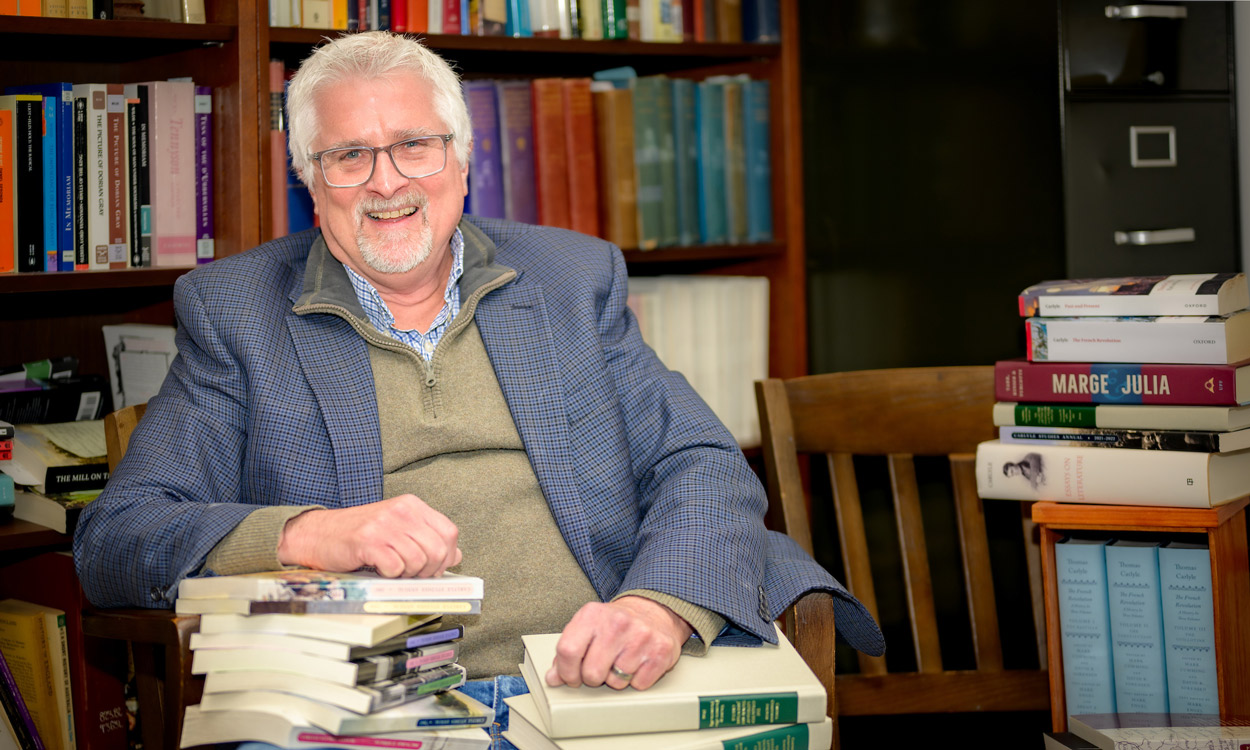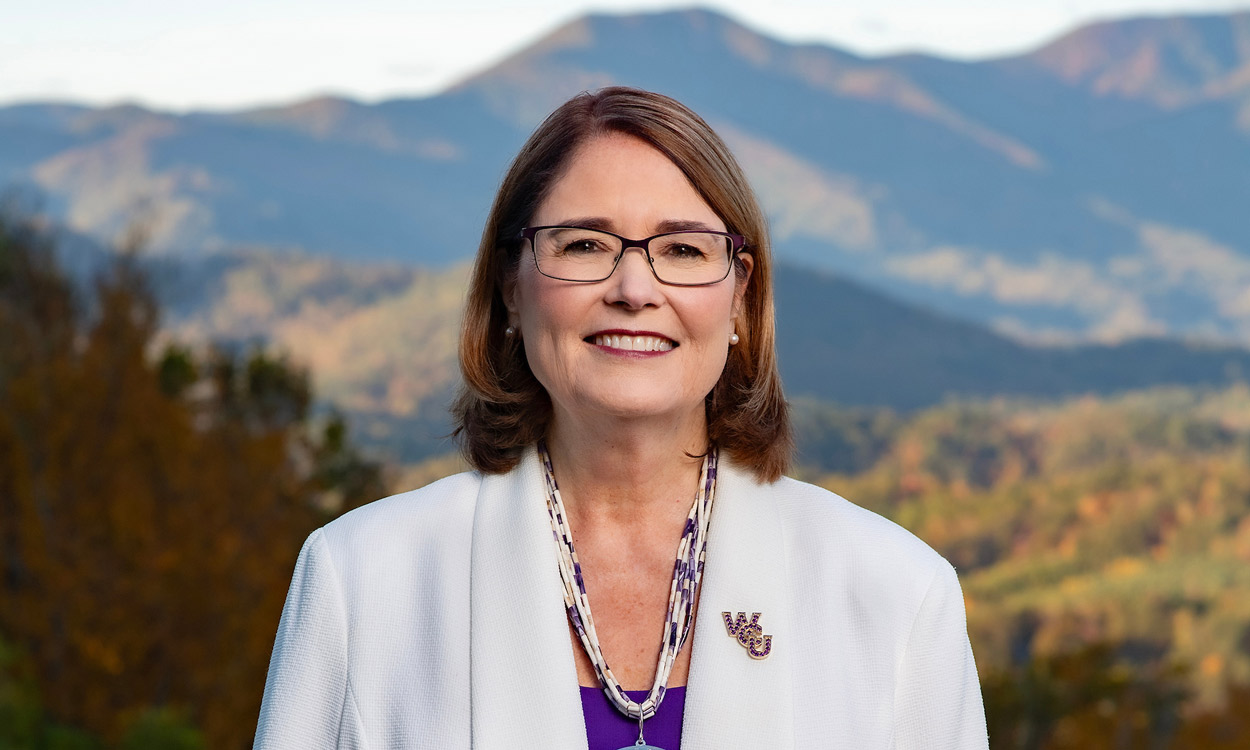Professor’s work on historical resource spans 20 years

Brent Kinser
By Chaz Lilly
Last September, English Studies professor Brent Kinser was recognized for more than 20 years of editorial work when Duke University Press held a celebration for the publication of the 50th and final volume of “The Collected Letters of Thomas and Jane Welsh Carlyle.”
Kinser served as a co-editor for volumes 35-50 and as an assistant or associate editor for volumes 31-34 of the print version of the project known as the “Duke-Edinburgh Edition.” He also served as coordinating editor of the electronic version of the project, “The Carlyle Letters Online,” or CLO. At the Duke UP celebration, former director Stephen Cohn remarked that Kinser “almost single-handedly” created the CLO and that his work had “helped to teach the National Endowment for the Humanities how to create electronic scholarly editions.”
“This project, one of the largest and most scholarly editions ever completed, is one of the most significant editorial accomplishments in our field. Brent was the primum mobile of what has now become an exemplar for open-access digital editions worldwide, and the project has been a significant pedagogical tool, having led to funding, graduate school acceptance and jobs for WCU students,” said Brian Gastle, English Studies professor.
Scholars in the United Kingdom agreed. The noted historian Simon Heffer calls the print edition “one of the greatest historical resources in existence,” and the editors’ and Duke UP’s commitment to providing the electronic edition as an open access resource as “one of the most generous acts of academic philanthropy imaginable.”
In the “London Review of Books,” Stefan Collini comments on this “magnificent scholarly edition” and the “treasure-trove of historical detail that will continue to be mined for many years to come, the more so now having been fully digitized and maintained as the Carlyle Letters Online.”
Thomas and Jane Welsh Carlyle were among the most influential figures of the 19th century. Jane Carlyle has been ranked second only to John Keats as one of the greatest letter writers of the period. In the more than 7,000 letters collected in the 50-volume edition, letters appear to and from such luminaries as Charles Dickens, Elizabeth Barrett Browning, George Eliot, Ralph Waldo Emerson, Margaret Fuller, Elizabeth Gaskell, Johann Wolfgang von Goethe, John Stuart Mill, John Ruskin, Alfred Tennyson, in addition to hundreds of other correspondents.
Although the print edition of the project has ended, Kinser continues to work diligently with colleagues to expand the content and improve the functionality of the CLO. He is in the process of editing more than 180 letters that were either found too-late for publication in print or that were undated with no way to determine their exact location in the collection. With his work on the Carlyles’ photo albums and on unpublished material at the David M. Rubenstein Library, Duke University, Kinser has more work to come to make sure the CLO remains a vital, evolving electronic resource for scholars around the world.
Kinser has worked with digital humanities organizations at universities across the nation to develop the digital project. The National Endowment of Humanities, which has supported the project since 1999 with more than $1 million in funding, uses the CLO as a model for their Digital Editions Grant.
The countless number of students that Kinser has used over the past two decades represents his strong commitment to bringing this significant scholarly work into his teaching. Just last semester, students in his senior-level seminar in Victorian Women’s Writing helped him to transcribe and annotate several unpublished Jane Welsh Carlyle Letters held at Duke’s Rubenstein Library.
As more testimony to the importance of this project, the celebrations are not yet over. Kinser will be speaking at two symposia later this spring, both of which have been organized as a celebration of the Carlyle letters project. The National Trust (UK) will host their event at Carlyle House in London on May 31, and The Institute of Advanced Studies will follow suit at the University of Edinburgh in June. Kinser looks forward to sharing what he has learned over the past twenty years and, as a self-proclaimed digital humanities optimist, what he sees as a bright and necessary future for open access scholarly editions.

